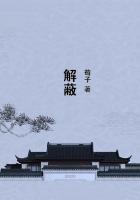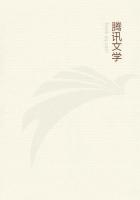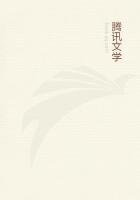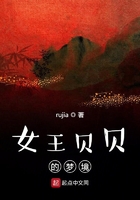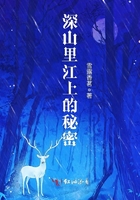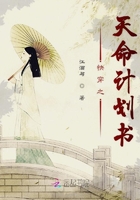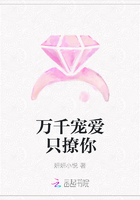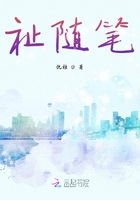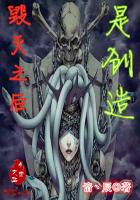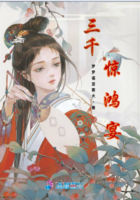BUT NOW THAT PEOPLE HAD BROKEN
THROUGH THE BONDS OF THEIR NARROW
MEDIAEVAL LIMITATIONS, THEY HAD TO
HAVE MORE ROOM FOR THEIR WANDERINGS.
THE EUROPEAN WORLD HAD
GROWN TOO SMALL FOR THEIR AMBITIONS.
IT WAS THE TIME OF THE GREAT
VOYAGES OF DISCOVERY
THE Crusades had been a lesson in the liberal art of travelling.
But very few people had ever ventured beyond the well- known beaten track which led from Venice to Jaffe. In the thirteenth century the Polo brothers, merchants of Venice, had wandered across the great Mongolian desert and after climbing mountains as high as the moon, they had found their way to the court of the great Khan of Cathay, the mighty emperor of China. The son of one of the Polos, by the name of Marco, had written a book about their adventures, which covered a period of more than twenty years. The astonished world had gaped at his descriptions of the golden towers of the strange island of Zipangu, which was his Italian way of spelling Japan. Many people had wanted to go east, that they might find this gold-land and grow rich. But the trip was too far and too dangerous and so they stayed at home.
Of course, there was always the possibility of ****** the voyage by sea. But the sea was very unpopular in the Middle Ages and for many very good reasons. In the first place, ships were very small. The vessels on which Magellan made his famous trip around the world, which lasted many years, were not as large as a modern ferryboat. They carried from twenty to fifty men, who lived in dingy quarters (too low to allow any of them to stand up straight) and the sailors were obliged to eat poorly cooked food as the kitchen arrangements were very bad and no fire could be made whenever the weather was the least bit rough. The mediaeval world knew how to pickle herring and how to dry fish. But there were no canned goods and fresh vegetables were never seen on the bill of fare as soon as the coast had been left behind. Water was carried in small barrels. It soon became stale and then tasted of rotten wood and iron rust and was full of slimy growing things. As the people of the Middle Ages knew nothing about microbes (Roger Bacon, the learned monk of the thirteenth century seems to have suspected their existence, but he wisely kept his discovery to himself) they often drank unclean water and sometimes the whole crew died of typhoid fever. Indeed the mortality on board the ships of the earliest navigators was terrible. Of the two hundred sailors who in the year 1519 left Seville to accompany Magellan on his famous voyage around the world, only eighteen returned. As late as the seventeenth century when there was a brisk trade between western Europe and the Indies, a mortality of 40 percent was nothing unusual for a trip from Amsterdam to Batavia and back. The greater part of these victims died of scurvy, a disease which is caused by lack of fresh vegetables and which affects the gums and poisons the blood until the patient dies of sheer exhaustion.
Under those circumstances you will understand that the sea did not attract the best elements of the population. Famous discoverers like Magellan and Columbus and Vasco da Gama travelled at the head of crews that were almost entirely composed of ex-jailbirds, future murderers and pickpockets out of a Job.
These navigators certainly deserve our admiration for the courage and the pluck with which they accomplished their hopeless tasks in the face of difficulties of which the people of our own comfortable world can have no conception. Their ships were leaky. The rigging was clumsy. Since the middle of the thirteenth century they had possessed some sort of a compass (which had come to Europe from China by way of Arabia and the Crusades) but they had very bad and incorrect maps. They set their course by God and by guess. If luck was with them they returned after one or two or three years.
In the other case, their bleeched bones remained behind on some lonely beach. But they were true pioneers. They gambled with luck. Life to them was a glorious adventure. And all the suffering, the thirst and the hunger and the pain were forgotten when their eyes beheld the dim outlines of a new coast or the placid waters of an ocean that had lain forgotten since the beginning of time.
Again I wish that I could make this book a thousand pages long. The subject of the early discoveries is so fascinating.
But history, to give you a true idea of past times, should be like those etchings which Rembrandt used to make. It should cast a vivid light on certain important causes, on those which are best and greatest. All the rest should be left in the shadow or should be indicated by a few lines. And in this chapter I can only give you a short list of the most important discoveries.
Keep in mind that all during the fourteenth and fifteenth centuries the navigators were trying to accomplish just ONE THING--they wanted to find a comfortable and safe road to the empire of Cathay (China), to the island of Zipangu (Japan) and to those mysterious islands, where grew the spices which the mediaeval world had come to like since the days of the Crusades, and which people needed in those days before the introduction of cold storage, when meat and fish spoiled very quickly and could only be eaten after a liberal sprinkling of pepper or nutmeg.
The Venetians and the Genoese had been the great navigators of the Mediterranean, but the honour for exploring the coast of the Atlantic goes to the Portuguese. Spain and Portugal were full of that patriotic energy which their age-old struggle against the Moorish invaders had developed. Such energy, once it exists, can easily be forced into new channels.

